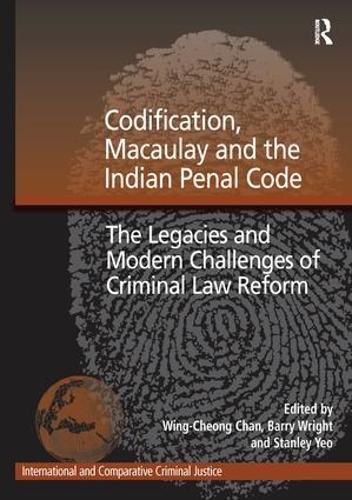Readings Newsletter
Become a Readings Member to make your shopping experience even easier.
Sign in or sign up for free!
You’re not far away from qualifying for FREE standard shipping within Australia
You’ve qualified for FREE standard shipping within Australia
The cart is loading…






Enacted in 1860, the Indian Penal Code is the longest serving and one of the most influential criminal codes in the common law world. This book commemorates its one hundred and fiftieth anniversary and honours the law reform legacy of Thomas Macaulay, the principal drafter of the Code. The book comprises chapters which examine the general principles of criminal responsibility from the perspective of Macaulay, and from more recent accounts by lawmakers and reformers. These are framed by chapters that examine the history and conceptual underpinnings of Macaulay’s Code, consider the need to revitalize the Indian Penal Code, and review the current challenges of principled criminal law reform and codification. This book is a valuable reference on the Indian Penal Code, and current debates about general principles of criminal law for legal academics, judges, legal practitioners and criminal law reformers. It also promises to have wider scholarly appeal, of interest to legal theorists, historians and policy specialists.
$9.00 standard shipping within Australia
FREE standard shipping within Australia for orders over $100.00
Express & International shipping calculated at checkout
Enacted in 1860, the Indian Penal Code is the longest serving and one of the most influential criminal codes in the common law world. This book commemorates its one hundred and fiftieth anniversary and honours the law reform legacy of Thomas Macaulay, the principal drafter of the Code. The book comprises chapters which examine the general principles of criminal responsibility from the perspective of Macaulay, and from more recent accounts by lawmakers and reformers. These are framed by chapters that examine the history and conceptual underpinnings of Macaulay’s Code, consider the need to revitalize the Indian Penal Code, and review the current challenges of principled criminal law reform and codification. This book is a valuable reference on the Indian Penal Code, and current debates about general principles of criminal law for legal academics, judges, legal practitioners and criminal law reformers. It also promises to have wider scholarly appeal, of interest to legal theorists, historians and policy specialists.